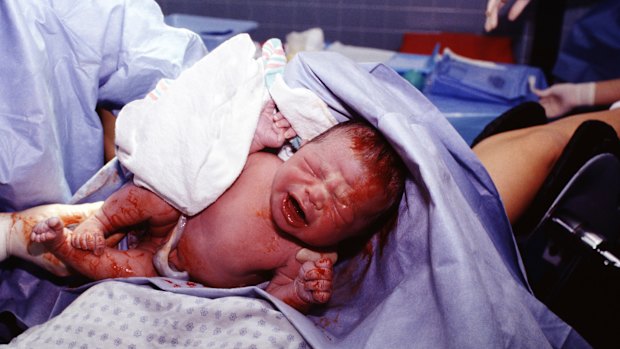“They’ve all had to go for their graduate year interviews,” Jacob said. “There’s been a lot more pressure on them.”
Jacob is concerned that these graduates will find work outside of nursing and never return to the profession after all the investment in their training.
“Big numbers of students will end up going into retail and hospitality,” she said.
Graduate nursing positions in Victoria are roles given to those who have just completed their tertiary education and are in their first year of practice. Budding nurses and midwives can apply for the positions only in the year they graduate.
The Royal Women’s, Monash, Royal Melbourne and St Vincent’s hospitals all said that there would be no reduction in the number of graduate nurse roles that they would offer next year.
The Royal Women’s Hospital said it was aware that demand for graduate nurse positions in 2026 exceeded current availability, while a Monash Health spokeswoman said the hospital was working closely with the Department of Health to ensure that its funding models allowed it to continue recruiting and retaining an extensive nursing workforce.
“As a health service, we recognise the importance of building and sustaining our nursing workforce for the long term and are doing everything we can to secure this,” she said.
Union and department sources said the oversupply issue had been brewing for months and could have been avoided by funding additional graduate nurse positions.
A Victorian Health Department insider, who spoke on the condition of anonymity, said the union’s numbers were “absolutely accurate”.
“Not only did the government invest in the students doing nursing, but they invested a lot in bringing in overseas nurses into Australia as well,” the department source said.
“So we’ve got a short-term oversupply in nurses. But the modelling says by 2027, we’ll be in shortage again.”

Students enrolling in a professional-entry midwifery course in 2023 and 2024 received up to $16,500 to cover their education costs.
The department insider said that if the Allan government didn’t act now, Victoria’s healthcare system would soon have a “big problem”.
“This current situation is short term. So it needs a short-term solution.”
Loading
In 2022, former premier Daniel Andrews announced the state government would pay the course fees of more than 10,000 nursing and midwifery undergraduates as part of a $270 million initiative to boost staffing across Victoria’s strained health services.
Under the scheme, domestic students enrolling in a professional-entry nursing or midwifery course in 2023 and 2024 received up to a $16,500 scholarship to cover their education costs.
They received $9000 while they studied, and a further $7500 if they worked in Victorian public health services for two years.
“Year 11 and 12 students who are thinking about what they might like to do as a career, they can choose nursing, free of charge, a full scholarship covering every dollar of their HECS,” Andrews told reporters when the initiative was announced at the Australian Nursing and Midwifery Federation offices.
Graduates unable to secure jobs next year will not receive the $7500 they were promised by the state government until they gain employment in the profession.
Harradence said she was calling on the Allan government to fund the 2000-or-so graduate placements given Labor had recently strengthened nurse-to-patient ratios and had overseen a significant health infrastructure pipeline.
“Taxpayer dollars have paid for them to study, and it is a wasted opportunity for this investment not to be realised,” she said.
“We cannot lose these critical graduates due to poor planning and shortsightedness.
“We urge the government to hold urgent discussions with the private acute sector about their level of investment in graduate nurses, and urgently explore all viable options to ensure we have a sustainable nursing and midwifery workforce into the future.”
Loading
An Allan government spokesperson said it would always back nurses.
“We are working with health services to open up more graduate positions in our public hospitals, as well as private hospitals, mental health, aged care, community health, rural and regional communities and primary care – where there remains a high demand for nursing graduates.”
Opposition health spokeswoman Georgie Crozier said the government would have known that this issue was brewing.
“They now need to commit to fixing it. As a result of their mismanagement, the health system will be under immense pressure.”
The Health Department was contacted for comment.
Students distressed by Friday’s news are being urged to contact the Nursing and Midwifery Health Program’s counselling service.
Late last year, The Royal Melbourne backed down from a plan to slash the working hours of early career nurses after the plan was revealed by The Age.
Separately, hundreds of successful applicants to The Alfred’s 2025 graduate nursing program were told their positions had been slashed from a 32-hour working week to 24 hours.
The Morning Edition newsletter is our guide to the day’s most important and interesting stories, analysis and insights. Sign up here.

